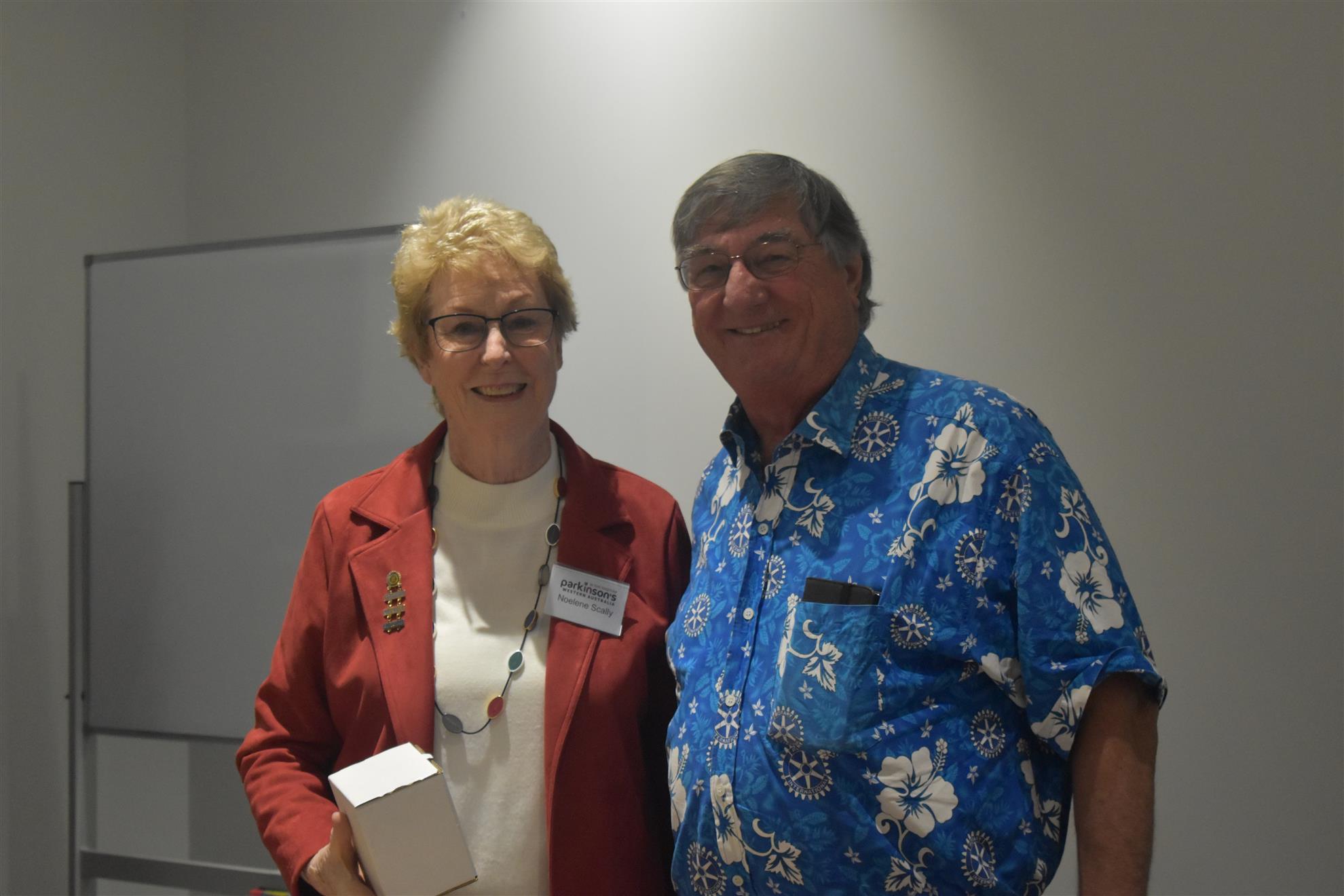This morning's guest speaker was Noelene Scully who gave us a very insightful account of what it is like to live with someone who has Parkinson's Disease. Noelene is pictured here with our club member Alan Thomson.

Noelene's husband has been dealing with the disease for a number of years now. Until it was diagnosed, his shakes, tottering balance issues and loss of sense of smell were all thought of as being part of getting older. However once diagnosed they have been dealing with a whole range of associated issues and emotions. Noelene indicated that it is a neurogenetic degenerative disease associated with the loss of dopamine producing cells in the brain. There is no known cure for it but research is working on that issue. Parkinson's is life altering rather than life threatening. People can live a long time with Parkinson's if managed well. Apparently there is no known diagnostic test for it; and it can only be confirmed as the disease at a post-mortem. It is a complicated disease to diagnose as it can have similarities with other diseases. She talked about the many stages of the disease:
- The first stage: these are considered the good years - despite the tremors and loss of sense of smell they were able to carry on pretty much as they had done prior to the diagnoses.
- The second stage: sees a slowing down of speech and digestion, as well as other issues because the muscles aren't working as they school. Handwriting often worsens and the voice level lowers as they find it hard to project their voice loudly. You often see in the person a shuffling walk and a typical stooped posture.
- The third stage: sees cognitive issues arise, with some memory impairment likely.
- The fourth stage: sees the person having less and less control over their limbs and medication is often less effective at this point.
- The fifth stage: palliative care is required.
Noelene and her husband have been living with Parkinson's for 8 years now and they are dealing with some levels of dementia, when he can't find the words he wants to use when he wants to use them. For them this is more apparent in the afternoons.
They follow a very strict medication routine prescribed by their doctors; which is sometimes a 'trial this and see his reaction' because some drugs work for some people but not everyone in the same way. They rely heavily on support from the Parkinson's Institute.
Earlier in the meeting we indicated that we were going to do a fundraiser and that any profits from that event would be for Parkinson's. Noelene suggested that if we could help support the nurses who provide support that would be a very good thing as she has found their assistance invaluable.
Thank you Noelene for that very informative talk.